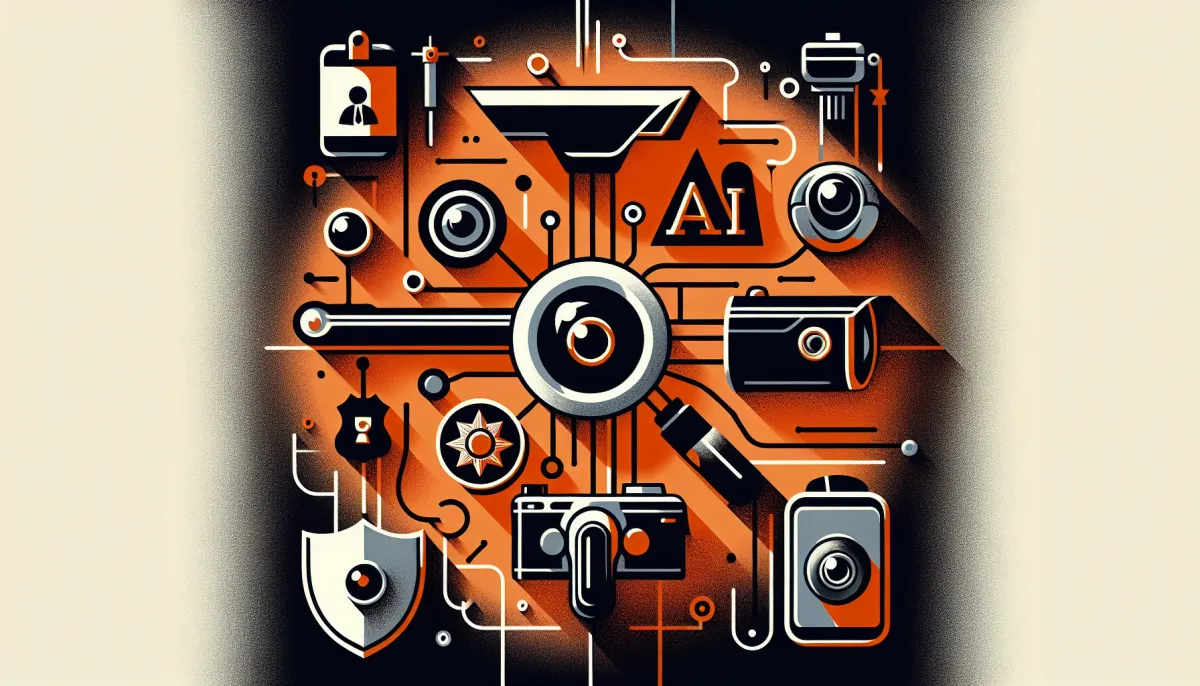Las Vegas Police Explore AI Innovations for Body Camera Footage and Investigations with a16z Support

We’re part of the Yahoo family of brands.
Our platforms and apps help you log in, keep your information secure, and prevent spam and abuse. We also track how you use our sites and apps.
You can accept all our partners. If you’d like to customize your choices, just click on 'Manage privacy settings.'
Take a look at our 234 partners. Recently, the Sheriff of Las Vegas shared some exciting ideas with a16z partners about using AI in body cameras. The Las Vegas police have received funding for tech like drones and license plate readers from Ben Horowitz, a partner at a16z. What’s next on their wish list? AI to analyze police footage.
During a podcast with Horowitz and Marc Andreessen, Sheriff Kevin McMahill expressed his interest in using AI to blur faces or hide sensitive information in body camera footage. He also mentioned how AI could help officers sift through the massive amounts of data they get from cell phone tower subpoenas during investigations. “I really believe that some of this AI can significantly help me as the Sheriff,” McMahill said.
The Silicon Valley venture capital firm released the podcast episode on Monday. This came shortly after TechCrunch revealed that Horowitz has been funding the Las Vegas police department’s purchases from several a16z portfolio companies. Emails obtained by TechCrunch showed that Horowitz has been involved in decisions about implementing some of these technologies.
This relationship has raised concerns among experts and advocates who focus on police accountability and surveillance technology. But both Horowitz and the Las Vegas Metropolitan Police Department (LVMPD) plan to continue and strengthen this partnership, as noted in the podcast.
“We’re committed to funding these purchases,” Horowitz stated.
“There’s no doubt that implementing these programs will take longer across the U.S. They won’t be able to adopt them as quickly as we can,” McMahill explained. “But we’re going to prove this works, and I think more municipalities will see the value in it.”
The podcast briefly touched on how LVMPD uses some technologies, like drones from Skydio and license plate-reading cameras from Flock Safety, both part of a16z. TechCrunch reported earlier that Horowitz has discussed at least four other technologies with LVMPD. The LVMPD did not respond to requests for comments.
Andreessen asked what more innovations the Silicon Valley firm’s companies could offer the department.
“Hopefully, our companies will come up with tech ideas, but what pressing issues are on your wish list? What do you wish you could do that you haven’t figured out yet?” he asked McMahill.
McMahill emphasized how AI could benefit the department. He mentioned that a unit of 12 people handles public records requests, spending a lot of time reviewing body camera footage to ensure faces are blurred.
“This technology shouldn’t be too hard to develop. It could save us from needing officers to do tedious tasks, like removing faces, addresses, and names from that video,” he said.
There are already other efforts to integrate AI into police work. For example, the startup Abel raised $5 million last month to create AI that analyzes body camera footage to write police reports. Additionally, Axon, a leader in police tech, has released a series of AI tools, including one that identifies objects in body camera footage to speed up the redaction process.
McMahill also explained that during investigations, LVMPD detectives sometimes subpoena cell phone tower records to determine a suspect’s location at the time of a crime. However, they often receive extensive records that are hard to sort through.
“If we could develop technology that processes sometimes millions of cell phone numbers and gives us a report saying, ‘Hey, these seven phone numbers were in these specific locations at the date and time you’re looking for,’ it would help us generate leads,” he stated.
In response, Horowitz said that applying AI to cell phone tower data would be a “very easy solve for us.” Andreessen added that developing tech to scrub faces from body camera footage “should be very easy.”
